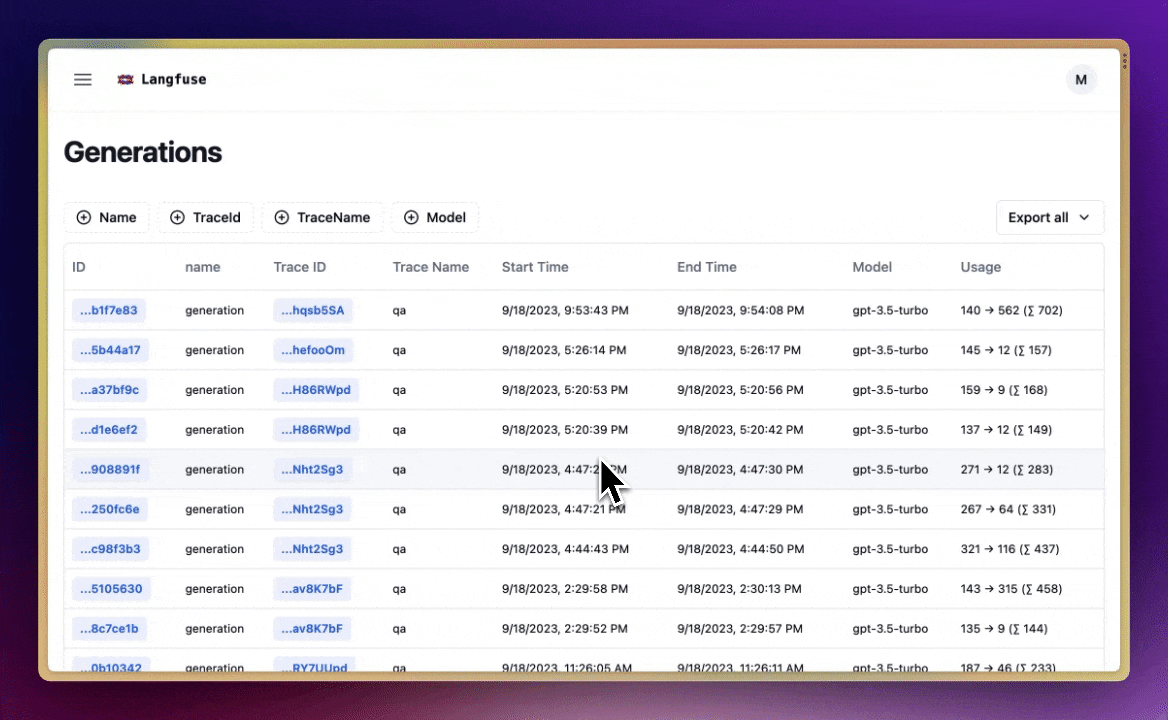Query Traces
Langfuse is open-source and data tracked with Langfuse is open. You can query/export data via: SDKs, API, and Langfuse UI.
Common use cases:
- Train or fine-tune models on the production traces in Langfuse. E.g. to create a small model after having used a large model in production for a specific use case.
- Collect few-shot examples to improve quality of output.
- Programmatically create datasets.
Want to learn more about the Langfuse data model? Check out our introduction to tracing in Langfuse.
SDKs
Via the SDKs for Python and JS/TS you can easily query the API without having to write the HTTP requests yourself.
pip install langfusefrom langfuse import Langfuse
langfuse = Langfuse(
secret_key="sk-lf-...",
public_key="pk-lf-...",
host="https://cloud.langfuse.com" # 🇪🇺 EU region
# host="https://us.cloud.langfuse.com" # 🇺🇸 US region
)
# Fetch list of traces, supports filters and pagination
traces = langfuse.fetch_traces()
# Fetch a single trace by ID
trace = langfuse.fetch_trace("traceId")
# Fetch list of observations, supports filters and pagination
observations = langfuse.fetch_observations()
# Fetch a single observation by ID
observation = langfuse.fetch_observation("observationId")
# Fetch list of sessions
sessions = langfuse.fetch_sessions()Python SDK reference including all available filters:
API
All data in Langfuse is available via the API. Refer to the API reference for more information.
Example routes:
GET /api/public/traces
GET /api/public/traces/:traceId
GET /api/public/observations
GET /api/public/observations/:observationId
GET /api/public/sessions
GET /api/public/scores
GET /api/public/scores/:scoreIdExport via UI
This is currently only available for the generations table in the UI. We’re
working on adding more export options for other objects.
All filters applied to the table will be applied to the export.
Available export formats:
- CSV
- JSON

Trouble exporting?
If you’re having trouble exporting data, please let us know and we’ll help you out.